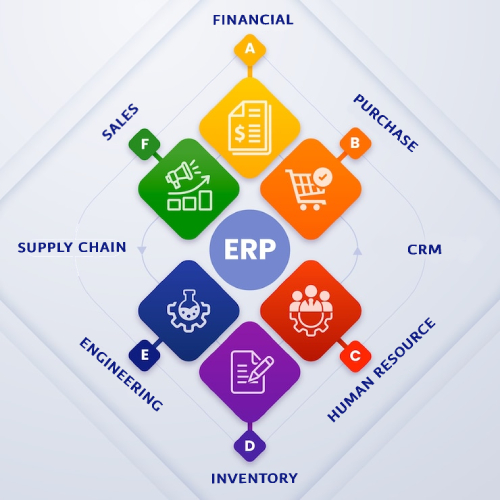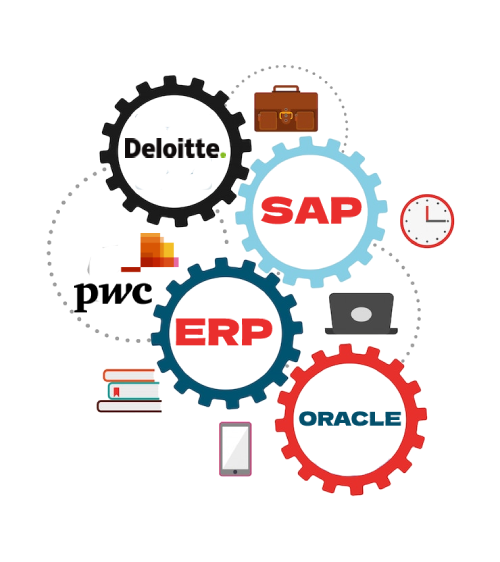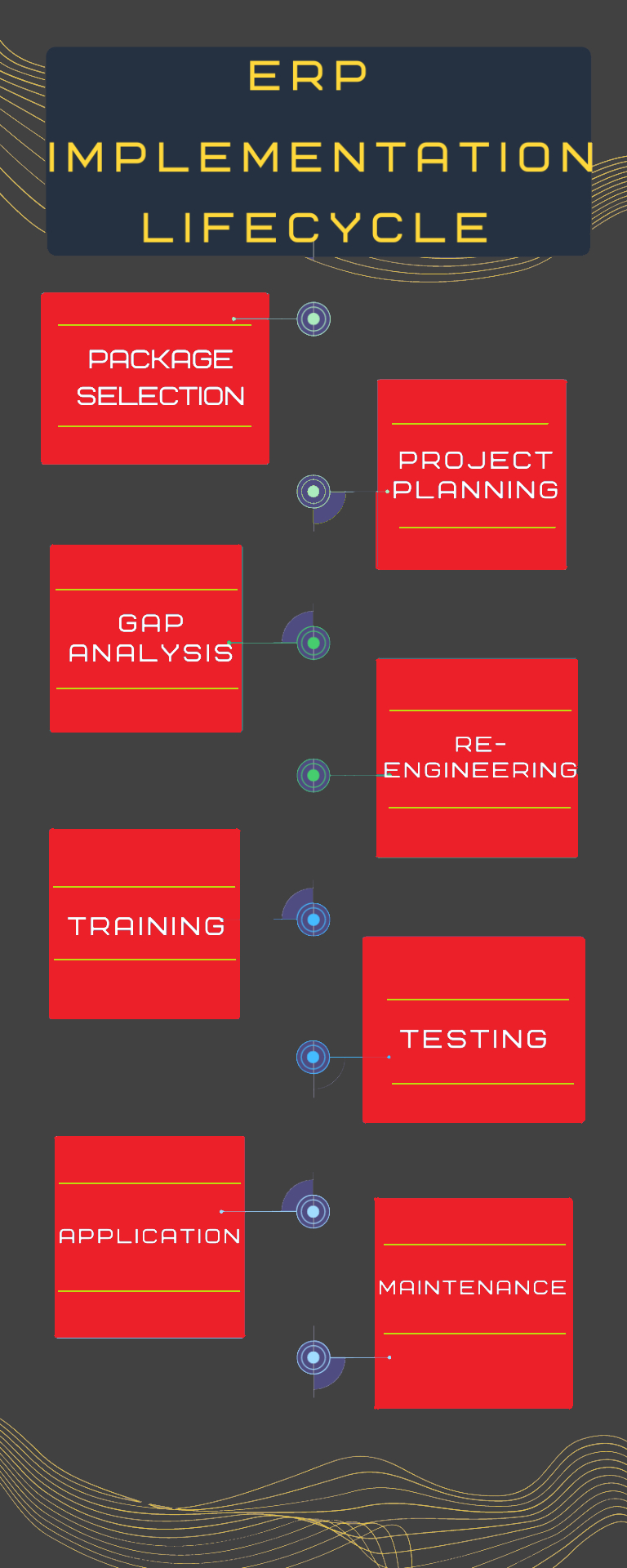“ERP Consulting Solution Provider in Singapore”
Pool of Quality ERP/SAP Consulting Solutions
Enquire to Hire
What is ERP Consulting?
ERP Consulting Solutions is a service that can be provided either by an independent consultant or a consulting firm. In either case an independent ERP consultant is hired by a business for the implementation of an ERP (Enterprise Resource Planning) system. They are usually hired for the purpose of
- Designing
- implementing
- and upgrading the system
- along with training the employees
of the company on how to use it. In brief, an ERP consultant’s main function is to make the organizations shift to ERP software which is accomplished through ERP implementation life cycle.


What type of ERP services do we provide?
At Intellect Minds, we have a large set of ERP consultants across APAC in:
- Singapore
- Malaysia
- Thailand
- Vietnam
etc. who have helped some of the IT giants like
- Deloitte
- PWC
- Oracle
etc. to form the project teams during the implementation and post-implementation phase of the project.
We Hire and Resource experienced ERP & SAP experts for stakeholders of ERP and SAP. The packages that are supported by Intellect Minds are SAP and Oracle ERP.
Types of teams comprising ERP Projects at Intellect Minds are
- Technical: A technical consultant in the ERP domain is the one who is required to implement software solutions, enhance or upgrade the systems, and resolve any issue. His primary role is to develop, design and customize the modules & Reports. Basically, he/she looks after the technological part of the business.
- Functional: A functional consultant in the ERP domain works closely with the end users to understand what they need from the system and then configures the software according to the need. Any GAP existing is then filled by the technical team.
- DBA: A DBA consultant in the ERP domain helps in installation and patching of the overall packages on the servers.


ERP Project Stages
An ERP project goes through 8 stages of implementation lifecycle and hence, is a step-by-step process to streamline all of the business operations in one direction i.e towards the company's goals.
Below are the 8 stages of implementation:
- Package Selection : At this very first stage of implementation, a company should be careful about selecting an ERP package that matches the company’s requirements. One must look for the factors like stability, degree of customization the software can provide for your business and future assistance after installation while choosing the right ERP package.
- Project Planning: At this stage, a company is required to come up with a realistic and clear plan for the process ahead. The plan should include clearly scheduled timelines and deadlines, identifying roles and responsibilities and assigning them to respective departments and personnel.
- GAP Analysis: It is one of the most critical stages of the ERP lifecycle wherein Gaps analysis is performed to identify the gap between the company’s current practices and the practices that ERP package supports.
- Re-Engineering: In this stage, the company’s procedures are completely redesigned and reevaluated fundamentally in order to make the improvements. Furthermore, several modifications and adjustments are made based on the outputs of planning and gap analysis stages.This is used to improve the value and process efficiency of the company.
- Training: Following the above mentioned stages, the system installation team is now prepared to train the employees. Sufficient training is required for the employees to start using the technology with ease.
- Testing: Another critical stage in the ERP implementation lifecycle is Testing. The main objective is to find faults in the process and fix them before deploying the process. The development team tests the entire process at their end in this stage while the organization tests difficult real-time situations including user error detection, data security, system congestion, etc. The system is officially declared operational after all details till this point have been addressed.
- Application: This stage is where actual application of the ERP system takes place. Once all the data has been gathered, analyzed and converted and is ready to be fed as input into the system, where the old system is discarded and the new system is implemented.
- Maintenance: In order to function efficiently an ERP system requires regular maintenance. As per the changes in an organization, the ERP system needs to be revised and upgraded. Furthermore, the project manager is required to take care of the ERP tools which need maintenance. He/She should contact the vendors frequently to know whether any updates or upgrades are available. Each new upgrade brings necessary changes in the functionalities hence, employees should be given crash courses on the new functionalities to make them familiar with the employees. Also, it is indispensable to update the training document such that it is in sync with the processes and procedures.
ERP Post-Implementation Activities
The first and foremost activity of the ERP post-implementation stage is conducting a Review. The main objective of this Review is to recognize:
- What was successfully established
- What was challenging
- What can be changed
- What still needs to be addressed
It is very important to note that an ERP implementation is an on-going process where it evolves along with the organization. It is critical for the Manufacturing organizations to pay attention to and notice this fact. The high (Return on Investment) ROI of an ERP implementation is dependent upon how the organization in the long run grows with ERP. This can only be achieved through:
- By delivering continuous and sufficient training, communication and documented material that meets the knowledge needs of the ERP users.
- In-depth documentation should be managed regarding implementation, training and process changes for future references.

